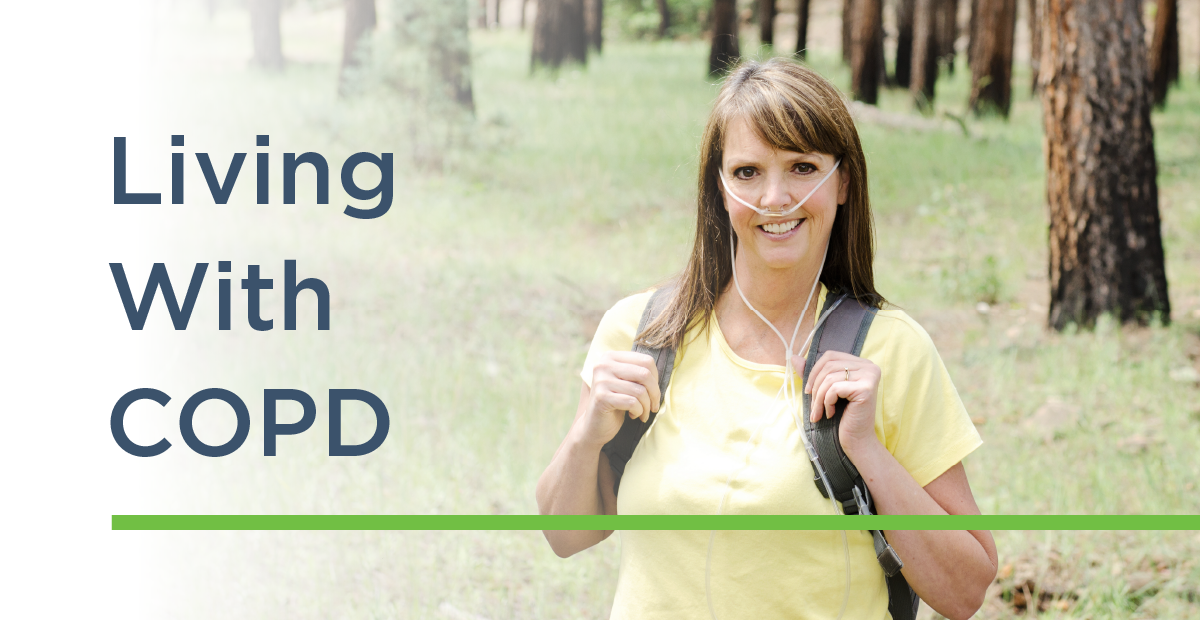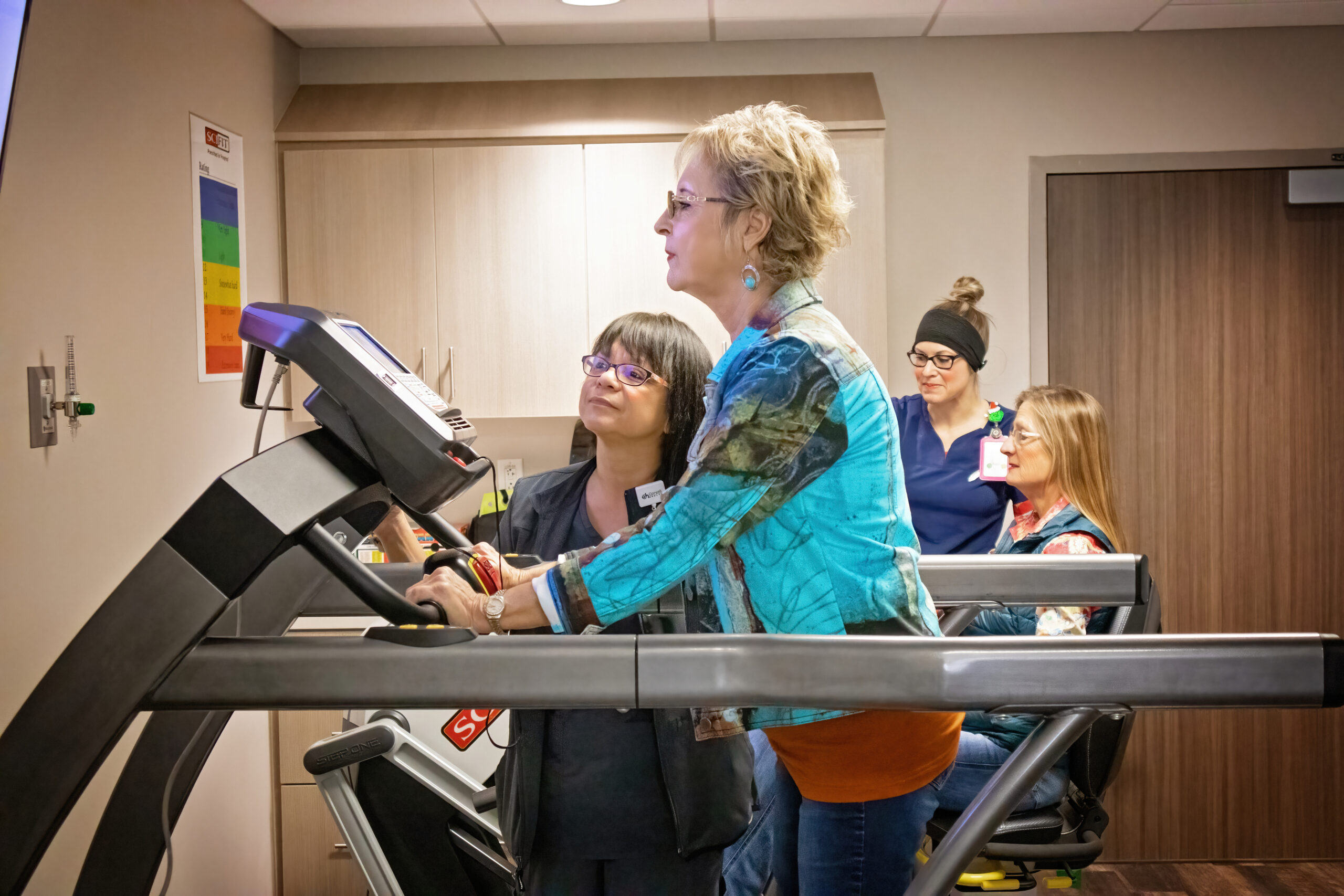
October 31, 2022
COPD is the fourth leading cause of death in the U.S, and 16 million Americans are diagnosed with the disease today. This life-altering illness can change the way you live drastically, preventing you from traveling, visiting family, exercising and even completing day-to-day errands. But there is hope! If you have COPD, it is possible to manage your symptoms so you can live a normal life and get back to the things, and people, you love.
Chronic obstructive pulmonary disease, or COPD, is a group of diseases including emphysema and chronic bronchitis, that constricts airflow, causing excess air to become trapped in the lungs. COPD damages your lungs and makes it difficult to breathe normally. It’s also progressive, meaning it worsens with time.
Managing Your Symptoms Starts Today
Don’t put life on pause after your COPD diagnosis. Lower your chances of complications related to COPD by managing your symptoms. Here are a few ways to take back control:
Quit Smoking
Smoking is the primary cause of COPD and can dramatically worsen symptoms. When you quit smoking, you can stop the progression of the disease and immediately improve your chances of managing your symptoms.
Avoid Allergens and Air Pollutants
It’s vital to monitor the quality of the air you breathe. Especially with the changing seasons, pollutants and allergens in the air can cause difficulty breathing, so keep track of your city’s air quality and try to stay inside on days when the quality is poor. Consider purchasing a humidifier. When allergy season approaches, work with your doctor to get the right medications or inhalers to manage your allergies to maintain your COPD symptoms.

Exercise helps the body use oxygen more productively, giving your lungs a better chance at breathing regularly. Studies have shown that a moderate amount of exercise, usually 20 to 30 minutes a day several times a week, can help improve how the body uses oxygen. Exercise increases energy levels, reduces anxiety and stress, improves sleep and reduces shortness of breath. If you suffer from COPD, you should always talk to your doctor first before beginning an exercise regimen.
Pulmonary Rehabilitation can be a great way to stay active and learn how to exercise with COPD. This program consists of education and exercise classes that teach patients about their lungs and disease and instruct participants on how to manage shortness of breath. The classes take place in a group setting, giving students the chance to meet others with COPD while both giving and receiving support.
Food & COPD
Experts recommend sticking to foods that produce less carbon dioxide, such as protein and healthy fats. Protein-rich foods, like milk, eggs, cheese, fish and nuts are recommended in two meals per day. COPD patients also should avoid simple carbohydrates, such as sugar and soft drinks, and foods high in salt.
Diet and exercise are great ways to lessen COPD symptoms and maintain a healthy weight. With COPD, there are risks associated with being either under or overweight. People who are overweight may already have a harder time breathing, even without lung damage from COPD. Underweight people are more susceptible to infections, including infections of the lungs.
Keep a Journal of Your Symptoms
Monitoring your symptoms in a journal will allow you to track when your symptoms worsen and can help you pinpoint why. With a firmer understanding of why your symptoms worsen, you can avoid those specific triggers and live a life with fewer disruptions. Journaling is also a great way to track any symptoms day-to-day, providing your doctor with evidence-based information on how you are doing or what changes need to be made to your treatment.
Join a Support Group
Patients diagnosed with COPD and their caregivers often have feelings of loneliness and isolation. Talking openly and honestly about feelings and experiences with others going through similar challenges helps reduce depression, anxiety and fatigue. Group members are able to offer support, encouragement and tips to the other group members, and receive the same in return. Consider joining the American Lung Association’s Better Breathers Network. Even if you don’t have access to a club meeting near you, you will get direct access to education, support and connection to others also living with chronic lung disease. You can also connect with an expert online or over the phone by contacting the Lung HelpLine at 1-800-LUNGUSA.COM

Consult a Physician
If you or a loved one is suffering from COPD, you don’t have to do it alone. Talk to your doctor about Coryell’s pulmonary rehabilitation program, designed to help you meet your goals so you can get out there and live your life to the fullest extent possible! Our rehabilitation team includes doctors, nurses, physical therapists, respiratory therapists and exercise specialists. Together, these health professionals create exercise and education tailored to meet your specific needs. Our pulmonary rehab program will empower you to not only live with, but control your disease because life is meant to be lived—on purpose and with purpose. Learn more: https://coryellhealth.org/pulmonary-rehab.
 Skip to content
Skip to content
